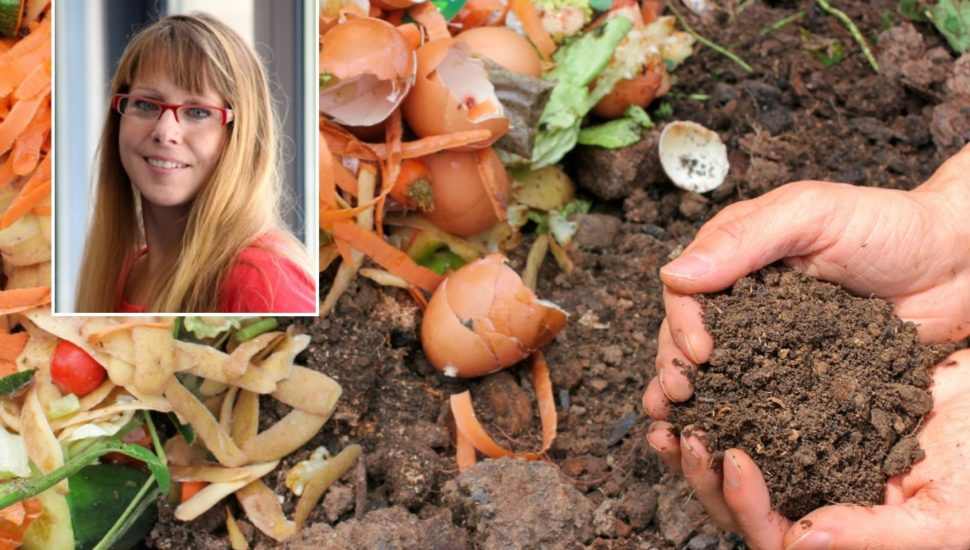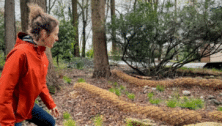WCU Professor’s Composting Program Diverts Tons of Food Waste from Local Landfills

 Approximately 35 million tons of food waste is thrown away every year in the United States.
Approximately 35 million tons of food waste is thrown away every year in the United States.
This waste, when sent to landfills, decomposes slowly and releases methane byproducts that are far more potent than carbon dioxide. According to the Environmental Protection Agency, food is the largest waste category going into municipal landfills across America.
Alternatively, food waste can be turned into compost that rejuvenates poor soil and reduces the need for the use of fertilizers and pesticides. This saves farmers time and money, preserves our water supplies by limiting harmful agricultural runoff, and reduces landfill waste.
Dr. Denise Polk, a communication studies professor in the College of Arts and Humanities at West Chester University, has long had a personal interest in sustainability and the environment – she grows her own organic garden, has solar panels on her home, and even keeps bees.
In the last few years, though, her interest has grown.
“I realized the impact that sustainability has in the community and saw an opportunity for the university and the town to collaborate,” said Polk.
Dr. Polk teamed up with the Borough of West Chester to create a pilot municipal composting program. She obtained funding from the EPA in 2014 to launch a trial involving the food waste from three local restaurants of different sizes. Over six months, the restaurants set aside their food waste, and the Department of Public Works picked it up and hauled it to a certified composting facility.
[uam_ad id=”58459″]
Advertisement
Those three restaurants alone generated 44 tons of food waste in that six-month period.
Following the end of the initial pilot program, the EPA recognized the borough and WCU for its success and awarded a second grant to expand the program to 10 participants and a year of collection. The participants include restaurants like Market Street Grill and Roots Café, the Barclay Friends senior living community, WCU’s Lawrence Dining Hall, and the cafeteria at Chester County Hospital.
The second project launched in September 2016 and has been a tremendous success. By the end of March, the DPW had collected 215 tons of food waste. By program’s end, the 10 participants will have diverted more than 500 tons of food waste from local landfills.
The composting facility utilizes much of the finished compost material generated from the food waste deliveries. Some of the participants will have access to finished compost. For example, Barclay Friends intends to use it to grow food, do demonstrations, and show their residents a closed loop of environmentally friendly food production.
Dr. Polk’s background in communication studies has helped propel the program to success.
“It is hard to envision a whole composting system on a large scale,” she said. “Many folks are interested in the success of the project, but it takes a lot of work to get people to listen, get excited, and talk to each other.”
West Chester’s composting program has been a tremendous success, and further demonstrates the power of collaboration between universities and their surrounding communities.
[uam_ad id=”58462″]
Connect With Your Community
Subscribe to stay informed!
"*" indicates required fields
















![95000-1023_ACJ_BannerAd[1]](https://vista.today/wp-content/uploads/2023/03/95000-1023_ACJ_BannerAd1.jpg)































